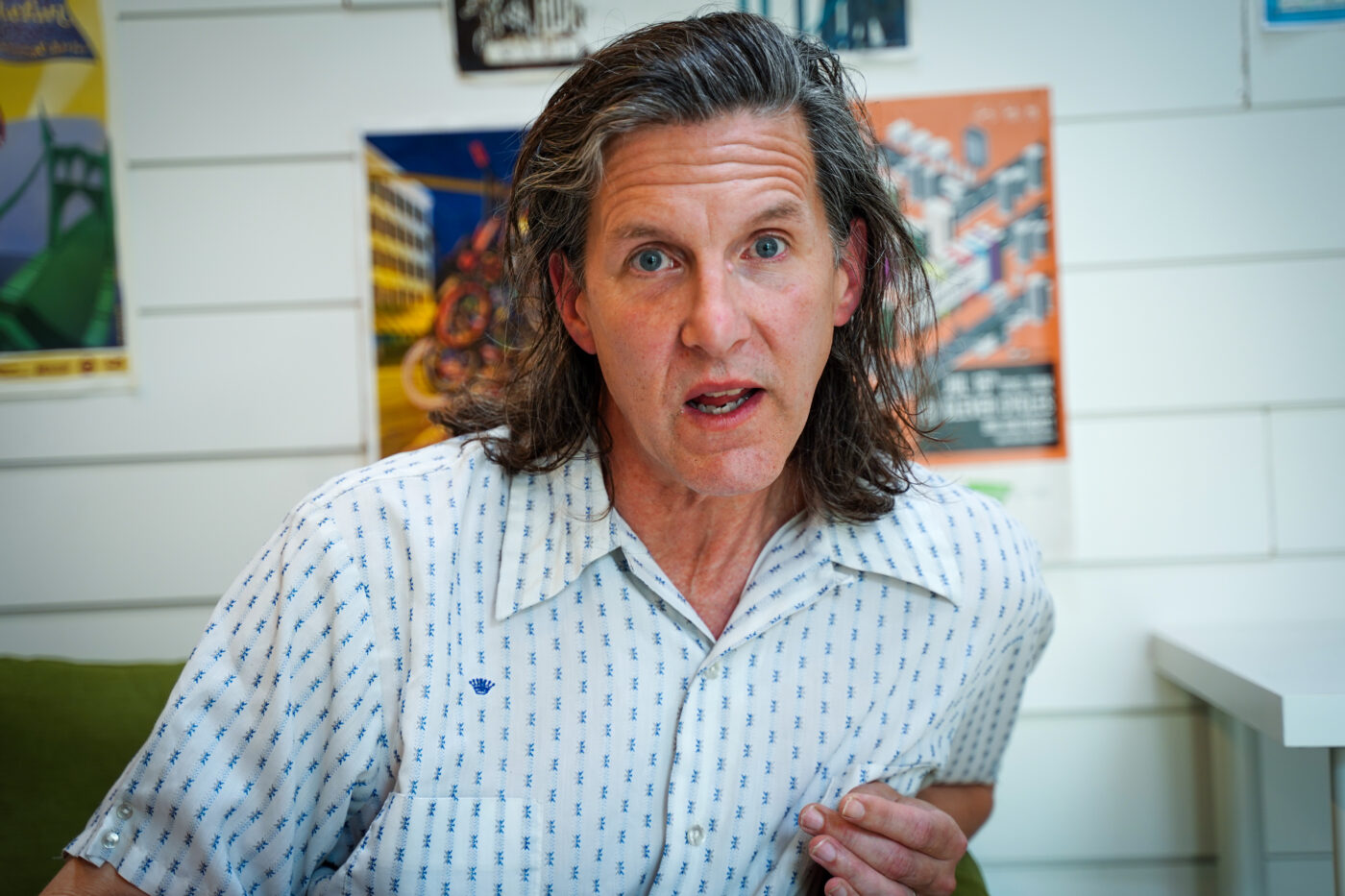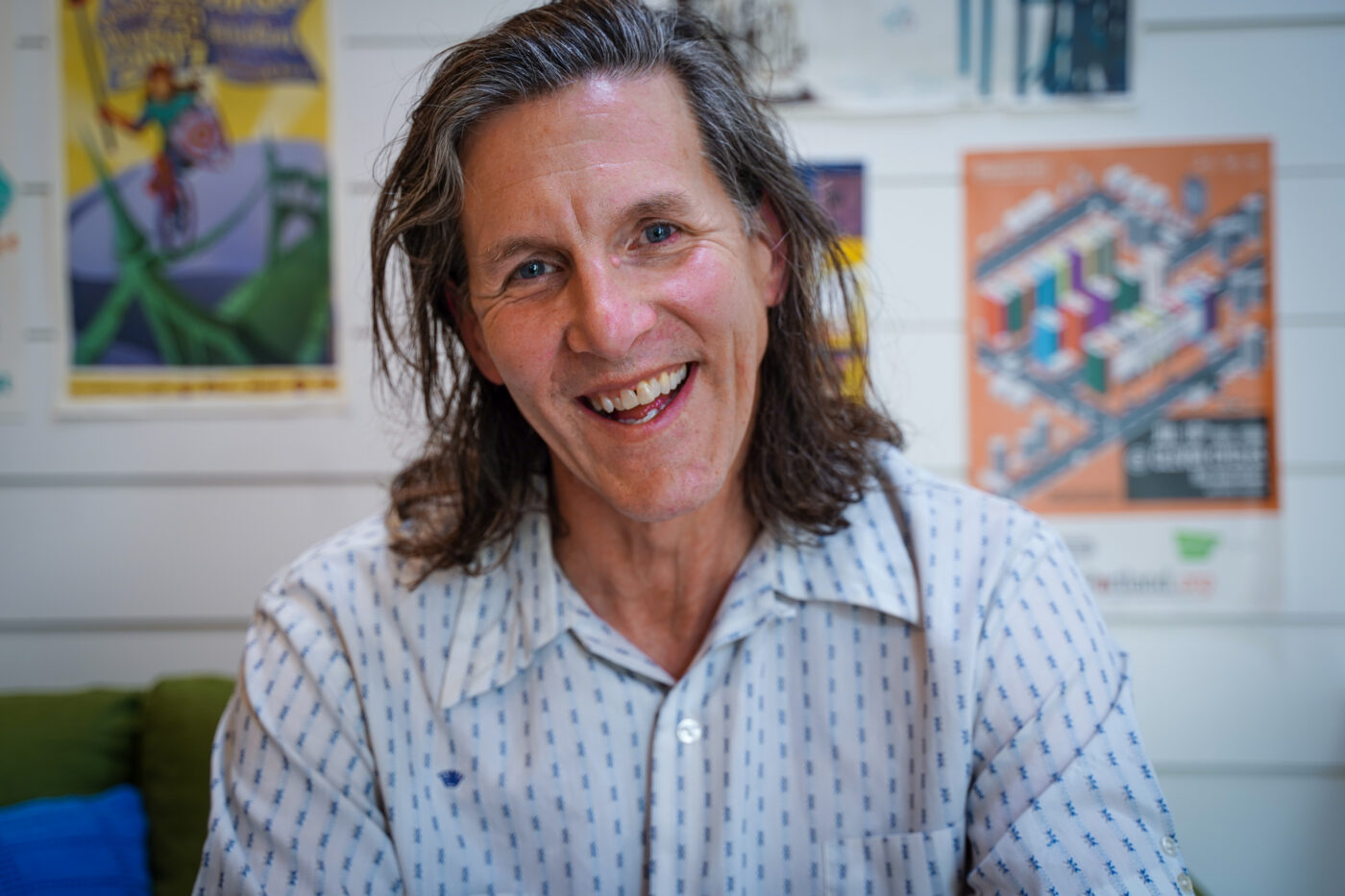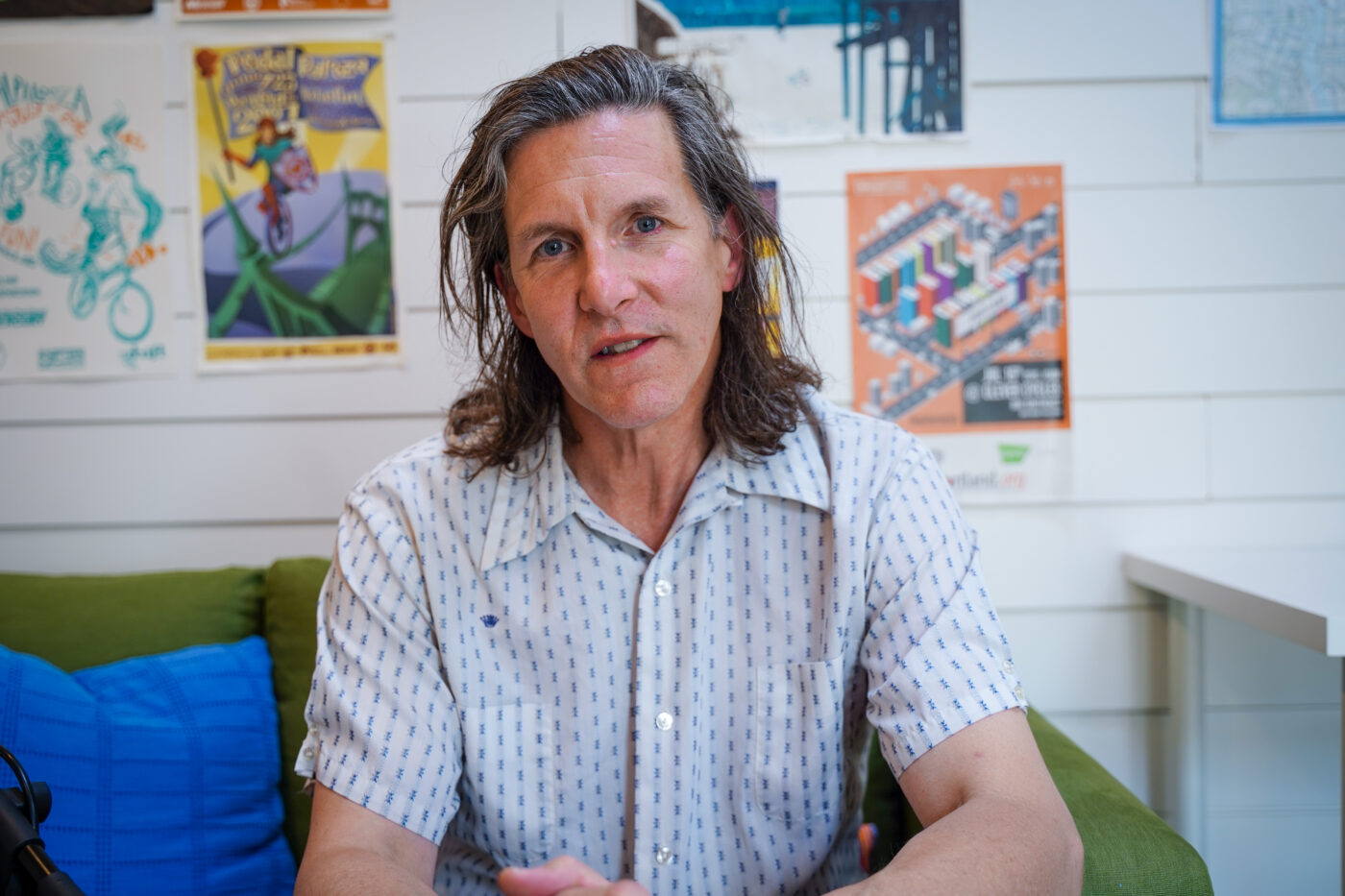Marshall Runkel wants back into Portland city hall, a place he first worked in 1995.
Runkel swung by the Shed on Friday for his first in-depth interview since he announced his bid for mayor last week. Listen to the full interview in the player above or wherever you get your podcasts. Or keep reading for excerpts and more about Marshall.
I first met Runkel when he was chief of staff for former Commissioner Chloe Eudaly. He was engaged on cycling and transportation issues during the two years his boss was commissioner-in-charge of the Portland Bureau of Transportation. Runkel left city hall at the end of 2020 when Eudaly lost to Mingus Mapps.
That was a pivotal year for many of us as the pandemic and protests became a big part of Portlanders’ lives. In our interview, Runkel shared that he needed to take a break. “I took a couple of months and just tried to collect myself and had no appetite for politics,” he shared.


Runkel focused on his family and went to work in the clean energy field, doing home renovations and HVAC work. Since leaving city hall he’s also worked as VP of local government affairs for political consulting company Strategies 360.
Runkel and I talked about a wide range of issues, from how he’ll separate himself from Commissioner Eudaly, to his role in mediating the relationship between bike activists and police during the standoff over Portland Critical Mass in the early 2000s. I asked Runkel what specific experiences he has that qualify him to be mayor, what he thinks of Portland voter sentiment at the moment, what type of basketball player PBOT bike coordinator Roger Geller is (the two played on the same rec league team), if he thinks Portland is doing enough for bicycling, and a lot more.
Below are just a few of our exchanges, followed by a video with selected clip from the interview:
Why jump into this race?
I thought about it for a really long time… In my heart, in my head, I know I can do that job. I know I can help the city. I’ve got the experience and the know-how. And it felt like I owe the city. The city has been incredibly kind to me… when I ended up here, it really did feel like home. And I thought I had to at least try. I couldn’t turn down an opportunity to give something back to the city.
What makes you think you can do the job?
I have a lot of specific experience. I’ve spent years and years on housing and homelessness issues. Dignity Village was my project way back when… and I did the organizing that led to the creation of the Housing Investment Fund. I’ve got specific experience in our biggest problems — and homelessness and housing are obviously that. And in our biggest opportunity, which is clean energy. It’s a huge competitive advantage that we have a local source of revenue for doing that work. We’re not going to solve the global problem here in Portland, but I think we can help show the world the creative, interesting, positive solutions.
A lot of people will see you as the ‘Eudaly guy’. How will you handle that on the campaign trail?
I helped Chloe get elected because we had whole buildings full of people who were getting evicted. Like double digit number percentages of kids in schools, families, were affected by eviction. We needed to stick the finger in the dike. That was my motivation, it was literally tearing our community apart and we needed to do something, and Chloe was proposing to do something. And that’s why [I worked with her].
If people don’t like me because I worked with Chloe, I can’t do anything about that, but I think if people listen to me and pay attention a little bit, it’ll be pretty clear that I’m not Chloe Eudaly. We’re different people and have different ideas and different approaches.
What has been your relationship to transportation throughout your life?
Growing up on the east [coast], I didn’t get a driver’s license until my mid-twenties. I didn’t really need to drive. The biggest adjustment about coming to the west coast was how much everybody drove. I took the bus to work for a decade or so. I love riding the bus… there’s a little community, you get to know that people ride the bus all the time. There’s a certain freedom about it, too, because I didn’t have to worry about parking, or, I could have a beer or two after work and not have to worry about driving.
And I credit bike activists in Portland for getting me on my bike. I rode with them [Critical Mass] a bunch of times [as a staffer for Commissioner Erik Sten]. It was fun. I got to know a bunch of people and that’s what kind of [taught me about] how the engineering choices affected safety and I saw the city through a new set of eyes.
Do you think Portland is doing enough, too much, or not enough to encourage more Portlanders to ride bikes?
Not enough. I think there’s a lot to do. It’s one of the things that I’m most excited about. My idea from the [PSU Traffic and] Transportation class [which he completed with Commissioner Eudaly in 2018] was about what I call ‘active transportation stations’. We’ve taken the bike share and scooters and kind of jumbled them up in a bag and threw them around the city. There’s no organized approach. I think that they could be very significant last-mile parts of our transportation system.
I would give us an F-minus on station areas. Like, unless you really love concrete… There’s very little commerce that occurs. There’s public safety issues. And the answer seems to be ‘We’ll have more security.’ Well when I see a security guard, it doesn’t necessarily communicate safety to me. I could transform these stations into real, little community hubs. It’s not just about transportation, it’s about activating those spaces into places where you would actually want to go.
On his leadership style:
I don’t think I’m special in any way. I think my values match the most people in Portland’s values, and because I have experience in politics, I know how to turn those values into things that we can do. And, more importantly, maybe help other people who have great ideas make their ideas happen.
I don’t care about getting credit, I prefer other people get credit. That’s not my thing. It’s not about the greater glory of Marshall Runkel. That’s not what I’m trying to do here. I’m trying to do something meaningful and good for our city. And that’s all I want to do. I don’t want some higher office. I don’t want to be governor or senator or be in congress. This is the job I want.
I’m 59 years old. I think this is going to be one of the last big things I do in my life and I’ve got a lot of energy and and ideas and I enjoy working with people. It’s fun for me to think about these projects and work with people. That’s, that’s why I’m running. Because I just couldn’t sit by with these thoughts and feelings and not at least try.
You can meet Marshall at Bike Happy Hour this week. He’ll join us on the Gorges Beer Co patio on SE Ankeny and 27th from 3:00 to 6:00 pm. Come around 5:00 to hear him speak.
— Listen to the full episode in the player above or wherever you get your podcasts.




